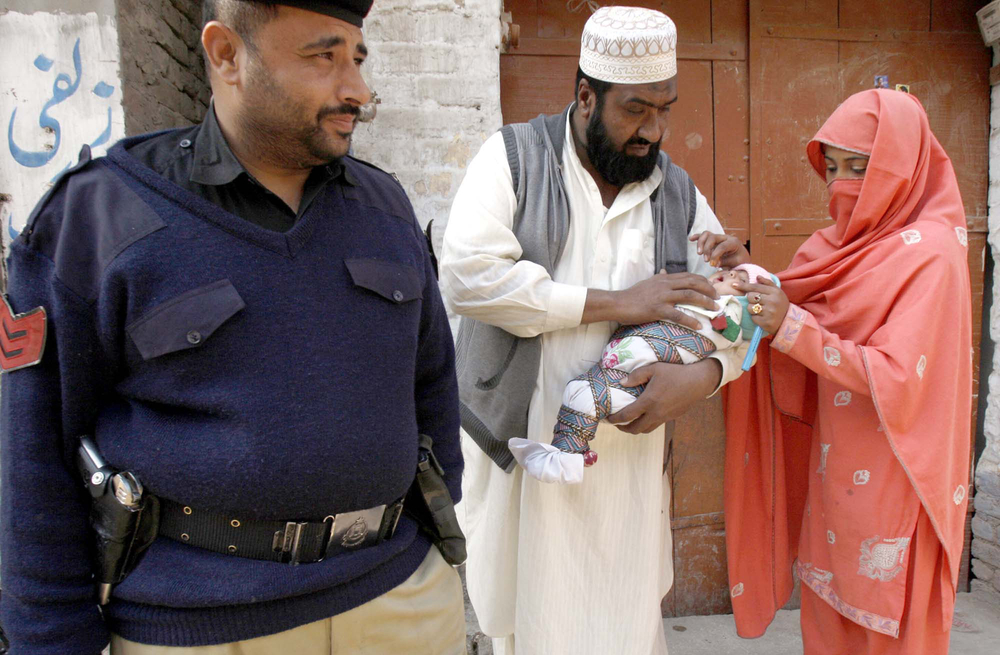Halal vaccines: ‘Different halal certifying bodies around the globe do not agree to one standard’ - AJ Pharma MD
In August this year the World Health Organization (WHO) said that Pakistan and Afghanistan must intensify efforts to stop the spread of polio.
Pakistan’s and Afghanistan’s mass vaccination campaigns have been held back by Taliban factions who banned the vaccines and, since 2012, killed more than 60 people on polio teams in areas they controlled.
Pakistani authorities then arrested hundreds of parents in northwest Pakistan in March this year after they refused to allow their children to be vaccinated. Many of these parents refuse vaccinations for their children because they believe the vaccines to be non-halal.
A pharmaceutical company based in Malaysia, AJ Pharma, is developing a halal polio vaccine in order to address this issue, and to ensure the awareness of the 'halal-ness' of vaccines moving forward.
Salaam Gateway finds out more from the company’s Managing Director, Dr. Tabassum Khan.
Salaam Gateway: What are halal vaccines? Apart from ingredients of porcine origin, what else stand in the way of certifying vaccines as halal?
Dr. Tabassum Khan: There are different perceptions about halal vaccines and these perceptions may vary geographically or by different strata of society. According to a survey conducted by AJ Pharma, the perception held by the general Muslim population about halal vaccines is that they should not contain any remnants of porcine origin or alcohol.
However when the same question was put to Muslim medical experts, two additional points were added: that the halal vaccines should be devoid of any animal source not classified as halal and that they should be non-toxic.
As per the perception of religious experts, halal vaccines should not come into contact with any substance declared as non-halal during the complete production and distribution process. Some religious scholars even prefer standalone segregated manufacturing facilities for halal vaccines.
Keeping all these perceptions in mind, we can safely say that there is no one single definition which could be associated with halal vaccines.
As far as certification of halal is concerned, unfortunately, different halal certifying bodies around the globe do not agree to one standard.
However for the sake of discussion, it could be said halal vaccines could cover most of the perceptions mentioned above except maybe segregated plants as in such a case the project may not be feasible.
Salaam Gateway: What are the halal vaccines already on the market now and are they universally accepted as halal?
Dr. Tabassum Khan: There are no vaccines approved or certified as halal at this point of time.
However, vaccines which are porcine-free or even to the extent of being animal source-free are available in the market but they are not certified as halal.
So if you go more into the details of reviewing the existing vaccines, there is a possibility of getting the first halal certified vaccine on the market within six months.
Salaam Gateway: What halal vaccines are AJ Pharma developing?
Dr. Tabassum Khan: Currently we are working on acquiring the rights of an animal source-free polio vaccine, which by our initial valuation can be certified as halal.
In addition to that, we are working on a conjugation technology which would allow the meningococcal vaccine used extensively during the Hajj period to be certified as halal.
Other vaccines are being worked on, but cannot be disclosed at this stage.
Salaam Gateway: What are the biggest challenges in the development of these vaccines and how are you overcoming them?
Dr. Tabassum Khan: The biggest challenge is time, cost and dearth of knowledge in the domain of halal vaccines.
Starting from scratch, we are trying to find a solution which would permit us to commercialise some of the halal vaccines in the shortest possible time.
Having said that, the biggest challenge will be to bring all the religious and halal certifying bodies together and to have a unified halal certification standard to which all of them agree.
Salaam Gateway: What are the standards that govern the halal vaccines AJ Pharma is developing and which organisations overlook the certification and auditing of these standards?
Dr. Tabassum Khan: The certifying standards are based on standards in Malaysia and we are trying to frame standards that will be unified throughout.
Salaam Gateway: On average, how long does it take to bring a halal vaccine to market?
Dr. Tabassum Khan: Development of vaccines involves basic research, pre-clinical studies, clinical studies and registration. Pre-clinical studies may take up to two to five years, clinical studies can be completed in a span of four to eight years and the registration process can be completed in one to two years.
So on an average, it might take about seven to fifteen years to bring vaccines to the market.
ABOUT AJ PHARMA
| When was AJ Pharma established? | December 2012 |
| Where is it based? | Malaysia |
| Who owns AJ Pharma? | AJ Pharma Holding is an initiative of Al Jomaih Group of Saudi Arabia and is solely owned by the Al Jomaih Group, which was established in 1936. It is one of the top ten conglomerates in Saudi Arabia, with local revenue of about $3 billion. The Group have made investments in various sectors globally including the oil and gas sector, the food and beverage industry as well as automotive industry, to name a few. |
| Does the company develop anything else other than halal vaccines? | Two subsidiaries of AJ Pharma Holding are operational in Malaysia, namely AJ Biologics with the flagship project being to set up the first ever vaccine formulation facility in Malaysia and AJ Research and Pharma, establishing the first halal pharmaceutical and neutraceutical facility in Malaysia. |
© Copyright SalaamGateway.com 2015

